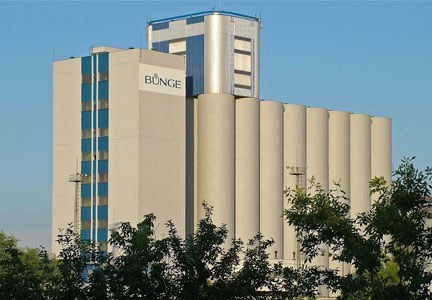Bunge partners with grain dealers on sustainable soybean sourcing

Bunge has developed a Bunge Sustainable Partnership program for soybean sourcing in Brazil that is designed to help the company reach its goal of deforestation-free value chains worldwide by 2025. The partnership will help grain dealers implement supply chain verification systems, including satellite and farm-scale images. Dealers may adopt independent imaging services or use Bunge’s geospatial monitoring structure at no cost.
“In Brazil, the dealers play a key role because they support more of the small- to medium-sized farmers that wouldn’t be of scale for the larger companies to work with,” said Rob Coviello, chief sustainability officer and government affairs. “It’s critically important that the industry makes sure (dealers) have the tools in place to monitor deforestation in their supply chains.”
The partnership will be especially critical in Brazil’s Cerrado region, which is at high risk for deforestation. In the region, 96% of Bunge’s soybean purchases are direct, meaning the company buys directly from farmers. Grain dealers, who buy from farmers and then sell the soybeans to agricultural companies like Bunge, are still vital, Coviello said.
“Some of those smaller farms need services that we can’t provide,” he said. “Some of the dealers provide them with maybe trucking or transportation or some other types of things that we’re not set up to cater to (small farms). Bunge doesn’t think that we should be getting rid of dealers. It takes an industrywide approach to make these changes. For us, we are willing to provide the services to help the dealers implement the type of monitoring programs that they are going to need.”
Bunge already has 100% traceability to the farm for its direct purchases. In the Cerrado region, the company monitors more than 8,000 farms, reaching a total of 11.6 million hectares (28.6 million acres), which is almost the size of Iowa, Coviello said.
Bunge currently traces and monitors about 30% of its indirect purchases, meaning soybeans purchased from dealers. Company goals are to reach 50% by the end of this year and 100% by 2025.
Bunge will share its experience, methodologies and tools with partner dealers interested in implementing or improving the social and environmental evaluation of their suppliers (farmers). For monitoring, which involves verifying soybean crops by satellite images, dealers may choose to contract their own systems or use Bunge’s structure free of charge.
Bunge is partnering with Agrícola Alvorada, a dealer, to carry out a pilot program. Data from the properties the dealer buys soybeans from already have been included in Bunge’s satellite monitoring cycle for this year.
“Bunge’s support and expertise in monitoring and tracking is critical to the overall improvement of our supply chain,” said Jarbas Weis, managing director of Agrícola Alvorado.
“It accelerated our adaptation to market demands.”
Read also
Wheat in Southern Brazil Impacted by Dry Weather and Frosts
Oilseed Industry. Leaders and Strategies in the Times of a Great Change
Black Sea & Danube Region: Oilseed and Vegoil Markets Within Ongoing Transfor...
Serbia. The drought will cause extremely high losses for farmers this year
2023/24 Safrinha Corn in Brazil 91% Harvested
Write to us
Our manager will contact you soon



